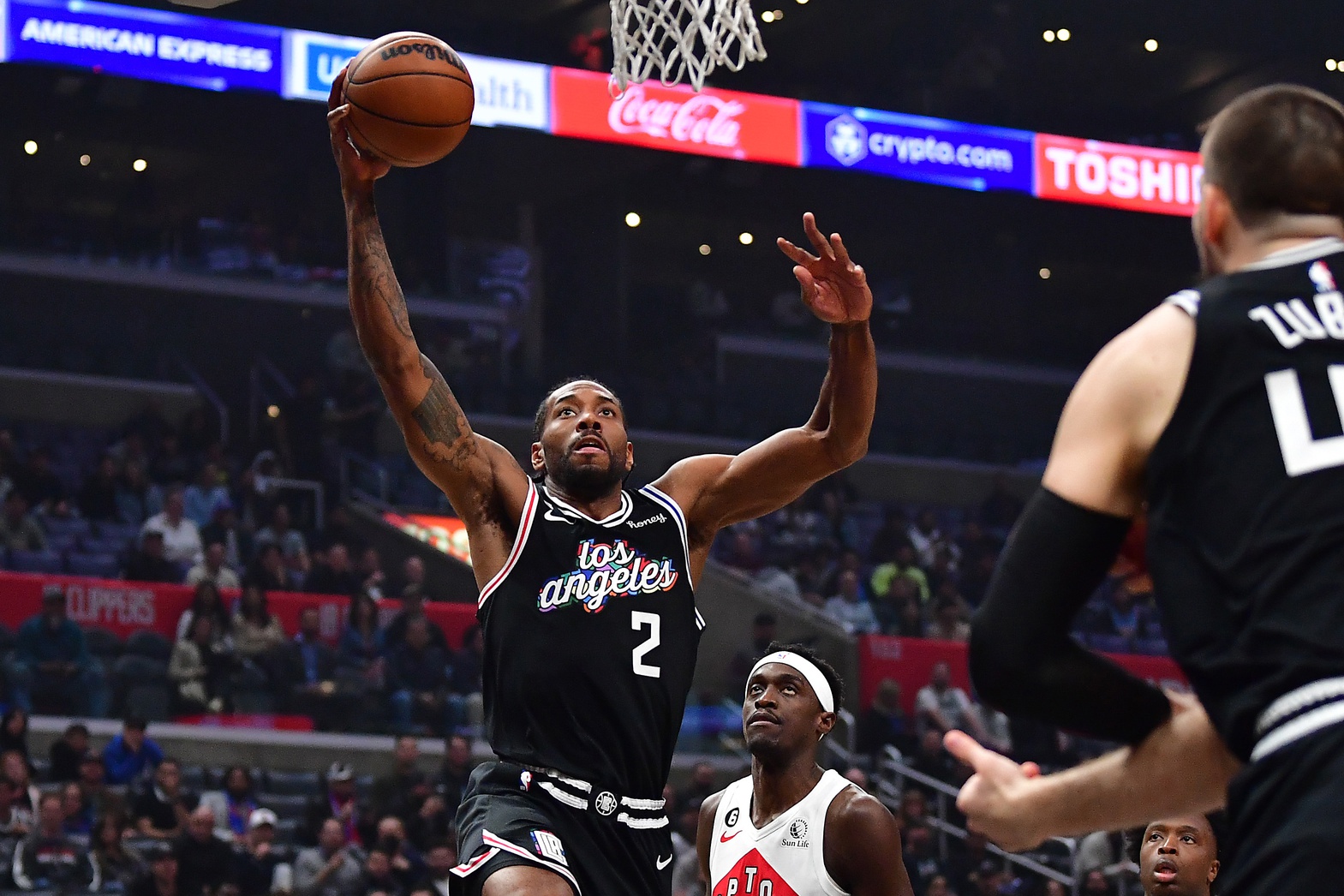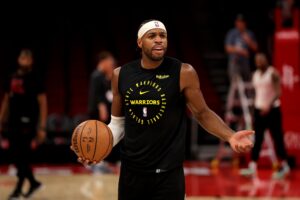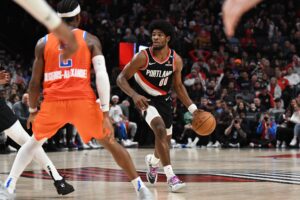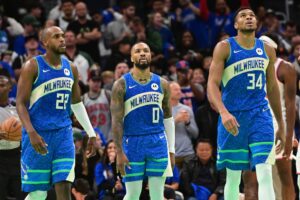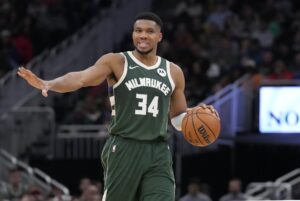Load management issues have started making more and more headlines in the NBA over the last few seasons, but this year they have been louder than ever. This could move to the forefront of the conversation again very soon.
The NBA has become the second most popular sport in the United States, behind American football and just ahead of baseball. This is going to change if the NBA alienates its fanbase. This is on the verge of happening. With fan popularity, football is king with 75%, basketball is second with 56%, and baseball pulls in third with 51%.
This article will examine some of the reasons it could become a likely possibility.
NBA is Playing with Fire in Load Management
Minimum Number of Games Played to Qualify for Stats Titles in the NBA
The NBA and the NBA Players Association (NBAPA) are close to an agreement that sets a minimum number of games played to qualify for awards like the MVP, scoring title, rebounding title, steals, etc. Crazy of me to think these limits were already in place. Personally, I would be mad if someone that played 50 games won an award and I had played 70 of the 82 games, for example.
This is a real issue, and Shams Charania of The Athletic has reported it on Twitter.
NBA, NBPA moving closer to agreement to establish rule that a player must play in a minimum number of games to be eligible for major awards as part of potential new Collective Bargaining Agreement, sources say.
Full details in The Bounce at @TheAthletic: https://t.co/0BKUBNAkQr
— Shams Charania (@ShamsCharania) March 13, 2023
This is going to create a few problems. These may not be evident immediately, but eventually, the players will go from wanting to play every game, as most do now, to just playing enough to qualify for the league awards. Players are naturally somewhat narcissistic, and a reason they are so great at what they do. So eventually, once it is ingrained into the culture, players’ mindsets will change. Especially with younger coaches and executives eventually going to take over.
Many coaches have been calling for it for years. I am not going to name names to avoid leaving someone out, but it is an issue. Especially on teams that have players that are injured or injury prone.
Instead of dealing with the issue with limited minutes and other methods, these coaches, and management included, want to be able to rest the players with no penalty or being accused of tanking games. Lately, teams have not just been resting one player on a certain night and letting other stars play, they are resting all of them at one time. Essentially throwing out a team of backups.
This does give bench players needed experience, but eventually, you will have teams collaborating and neither team starting starters on the same nights. Which leads us to our next issue.
Fan Alienation Will be an Issue in the NBA
NBA tickets are not cheap, and it costs the average family well over $200 to go to a game (personal experience) when you figure in parking, tickets, and just basic concessions. When fans take kids, or even themselves, to games and spend a lot of money, and they don’t get to see their favorite players or childhood heroes play, you have a problem. Fans don’t care about load management when they are attending games.
Everyone can’t afford to buy tickets last minute and have to buy them in advance and then save up for the game day experience. Who doesn’t want to be able to give themselves or their families a good time on game day and not just go to the game and then come home? Kids want souvenirs like jerseys, hats, t-shirts, etc. They want to get hot dogs, hamburgers, pretzels, ice cream, etc., from concession stands. Adults may want to drink a couple of beers or liquor drinks, which are already pricey.
Let’s say, for example, the NBA/NBAPA set the limit at 60 games to qualify, which means there are 22 games in that teams can sit players when they are perfectly healthy to play. This is asinine. Players are making a lot of money and should be on the court.
I know the NBA is a grind of a season, and it wears on the body, but the NBA has already retooled the schedules to cut down on travel and games back to back. No longer do you have four games in six days and very few three games in five days. Now they travel and play teams for two games in the same city and have a day of rest between games. Case in point, the Atlanta Hawks traveled to Miami a couple of weeks ago and played Miami on Saturday, had Sunday off, and played again on Monday. That is already load management and built-in rest days.
Load Management Could Cause NBA Attendance and Ratings Decline
With shenanigans going on like this, attendance could start to suffer. It is just now recovering from Covid-19 and pandemic-related restrictions. Ratings are also recovering after a downturn while they were in the bubble during the pandemic.
The NBA doesn’t release actual attendance records, clicks of the turnstile, or scanned tickets, they release tickets sold. All sports do that and have for a couple of decades. You have to use the eye test and see the arenas on highlights and games on TV. In many arenas, they tell cameramen not to show the empty seats unless absolutely necessary.
Teams that win will sell out and fill arenas, teams that lose will sell tickets in advance, and many will not show up. This is not shown in the attendance records. I have noticed it watching highlights and games on ESPN, TNT, and local Hawks broadcasts. This is just the nature of the beast. It will get worse if fans are not guaranteed to see the stars from each team. Why would you even watch them on television if one, or both teams, are essentially putting glorified G-League teams on the floor?
Some teams are just so followed and so good that they sell out no matter where they play. That is not the case for mediocre to bad teams. Especially after Christmas and the teams start to settle in and separate themselves. Why would the fans even go to the arena when not guaranteed to have a good product on the floor?
What is the Solution for Load Management in the NBA
That is the multimillion-dollar question about load management. Letting teams sit starters and stars for no reason other than rest is not the answer. It is a slap in the face of every fan of the NBA. There is no NBA without fans or TV contracts. TV contracts are based on advertising money the networks can sell. If people don’t watch, these companies are not going to spend to advertise on these broadcasts. Then that trickles down to money for the leagues and players. This is s slippery slope the NBA needs to think about. There are better ways to handle management and prevent the tiring of players and injuries.
I grew up watching the NBA boom of the 1980s and physical basketball. Then the transition to the 90s and all the athleticism. The transition of the NBA becoming a bad product because it became basically a one-on-one league with four guys standing around. To NBA players getting beat in the Olympics and International competitions. Now the NBA is in a renaissance after deciding to go back to team basketball slowly over the last 15 years or so.
There was no load management then; there should be none now. Teams that knew they would make the playoffs in the past would not play their starters 30-35+ minutes a game before January 1st in the season. They limited their minutes so they could make a hard second-half push and get ready for the playoffs. They may lose a few games doing this, but it got the entire team ready. This method should be utilized today.
No reason for sitting players for no reason. All indications show the players want to play, and if they are healthy enough to play, they should play. Could you imagine someone telling past Hall of Fame players they were not going to play tonight just because? That would not fly.
This doesn’t even get into the Fantasy Sports and Sports Gambling implications of what this would do.
The NBA is riding on a high right now, and it is not the time to play with fire. You alienate your fan base; You may never get them back. Let the players play and quit worrying about these issues. Putting the best product on the court at all times is a must to keep the credibility of the league.
Please check out the Last Word On Sports Podcast with Greg Gumball of CBS Sports and all things NCAA Tournament and his experiences during March Madness.


